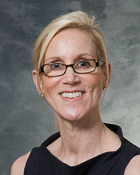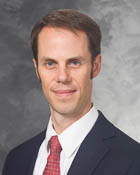Several of UW Radiology’s expert faculty have appeared over the airwaves to discuss novel imaging methods, screening processes, and health recommendations. Here’s a look at what they said:
When to Begin Mammograms
Chief of Breast Imaging Dr. Wendy DeMartini

According to the U.S. Preventive Services Task Force, most women should wait until age 50 to start regular mammograms. However, others recommend women start earlier. Here’s Dr. DeMartini’s take:
“Mammography decreases death from breast cancer for women in their 40s, as well as women in their 50s, 60s and 70s.”
“If we don’t do mammography at all in those women [below age 50], we’re really missing the opportunity that we could with screening to find at least half of the breast cancers in those women.”
“Women with risk factors, including relatives with breast cancer have a different set of recommendations, which include having a mammogram once a year, typically beginning around the age of thirty.”
Featured on Wisconsin Public Radio on September 18, 2013
Lung Cancer Screening
Chief of Thoracic Imaging and Vice Chair for Quality and Safety Dr. Jeffrey Kanne
 Annual CT lung cancer screenings for smokers could prevent thousands of deaths, according to the U.S. Preventative Services Task Force. Dr. Kanne explains why:
Annual CT lung cancer screenings for smokers could prevent thousands of deaths, according to the U.S. Preventative Services Task Force. Dr. Kanne explains why:
“The recommendation considers the lower costs, and better outcomes, when lung cancer is treated early. ”
“[The screening is intended for] patients between the ages of 55 and 79, who have smoked at least 30 pack years. One pack year would be a pack a day for a year.”
“The cost of treating lung cancer in its early stages is much lower than in its later stages, when it’s usually not curable and most of the treatment is for palliation only.”
Featured on Wisconsin Radio Network on July 31, 2013
CT Colonography
Chief of Gastrointestinal Imaging Dr. Perry Pickhardt
Many critics of the modality have voiced the opinion that virtual screening can miss smaller polyps that can later become cancer. Here’s Dr. Pickhardt’s opinion:
“Colorectal cancer is largely preventable through detection of small, precancerous polyps, yet the disconnect is these small polyps are highly prevalent and not an effective target for screening.
“Should [small polyps] be sent for immediate polypectomy, or is that overuse of resources? I think we know just from numbers that only a very small percentage progress to cancer.”
“CT colonography provides an ideal method for in vivo surveillance [of small polyps]. ”
Featured in The Lancet Oncology podcast series on June 6, 2013.